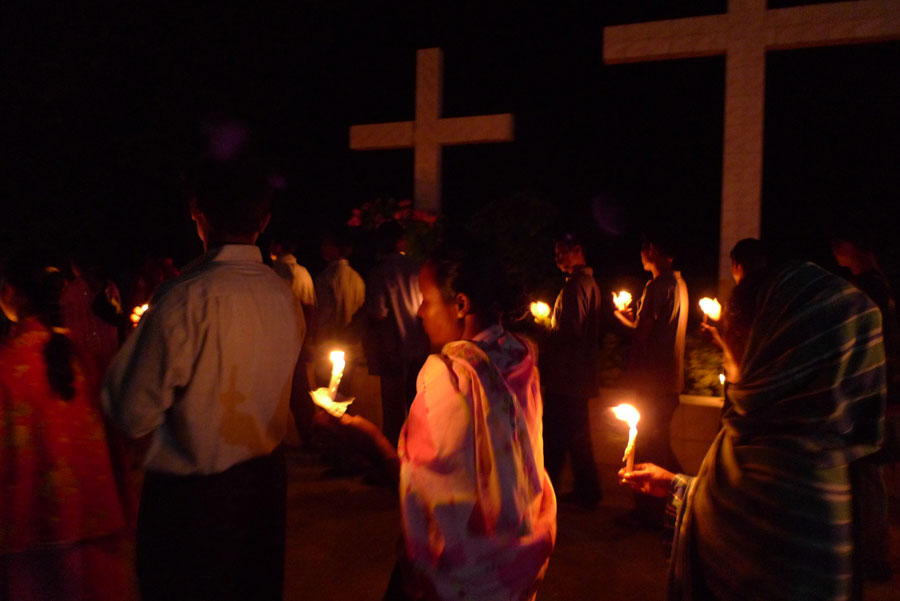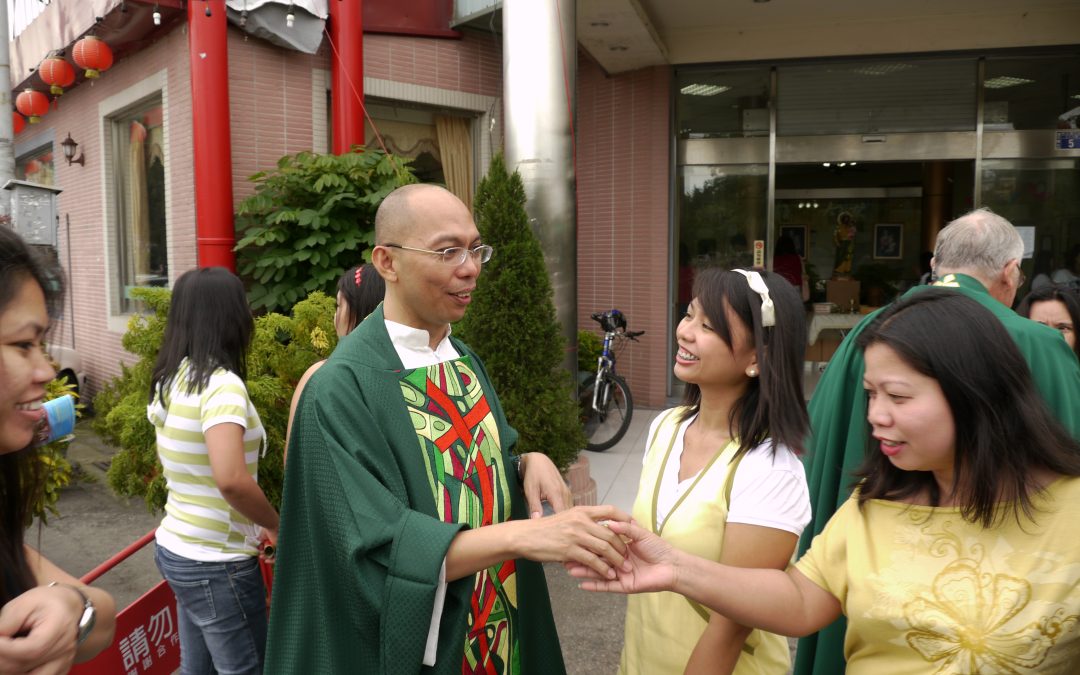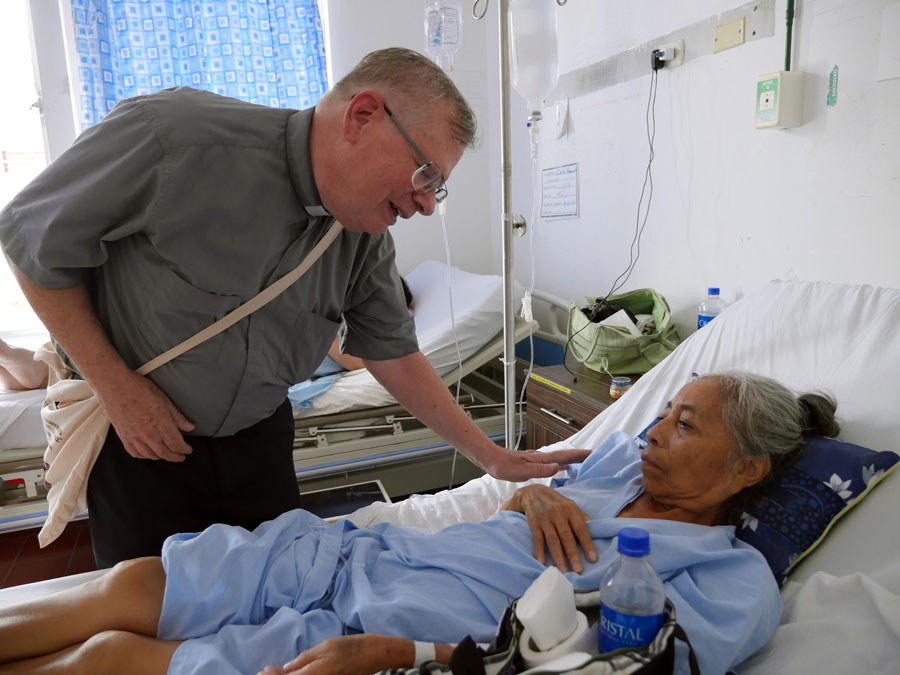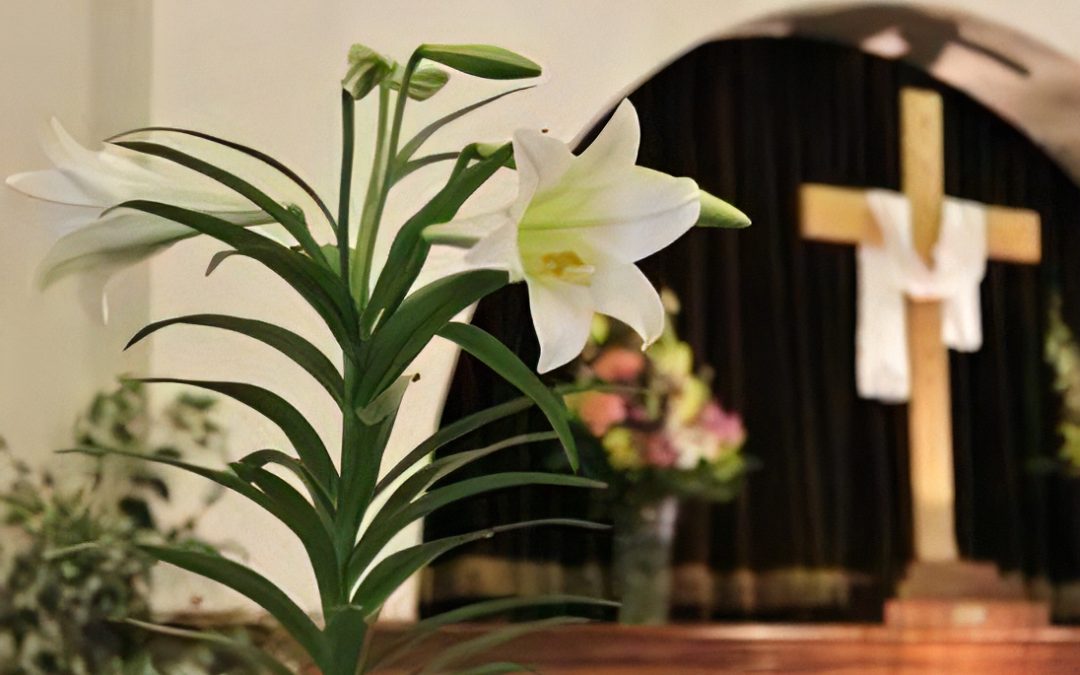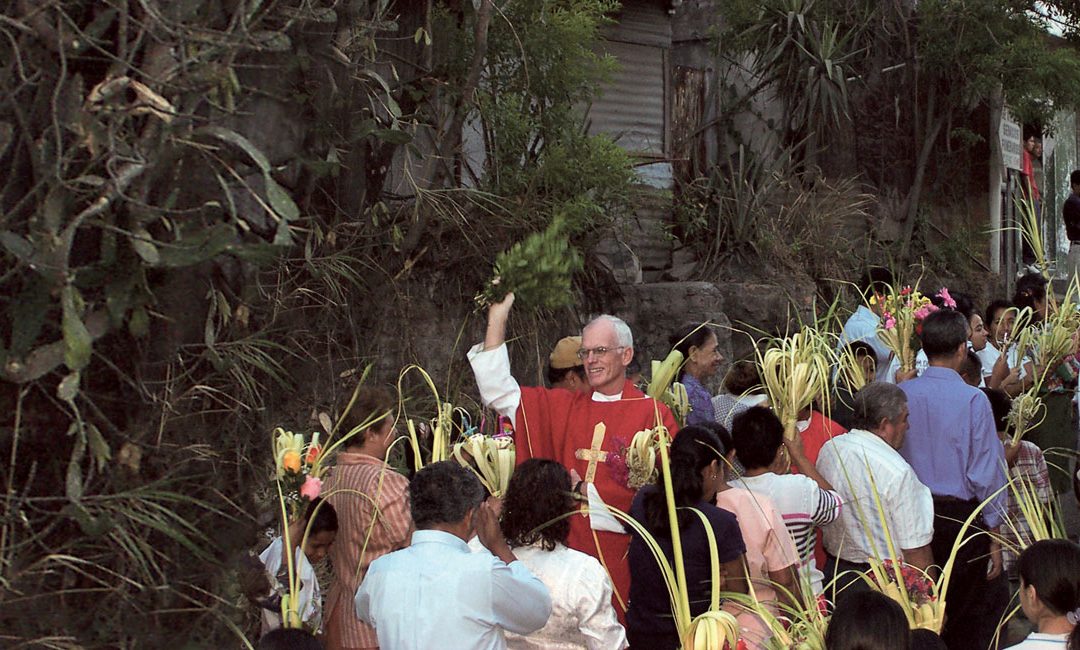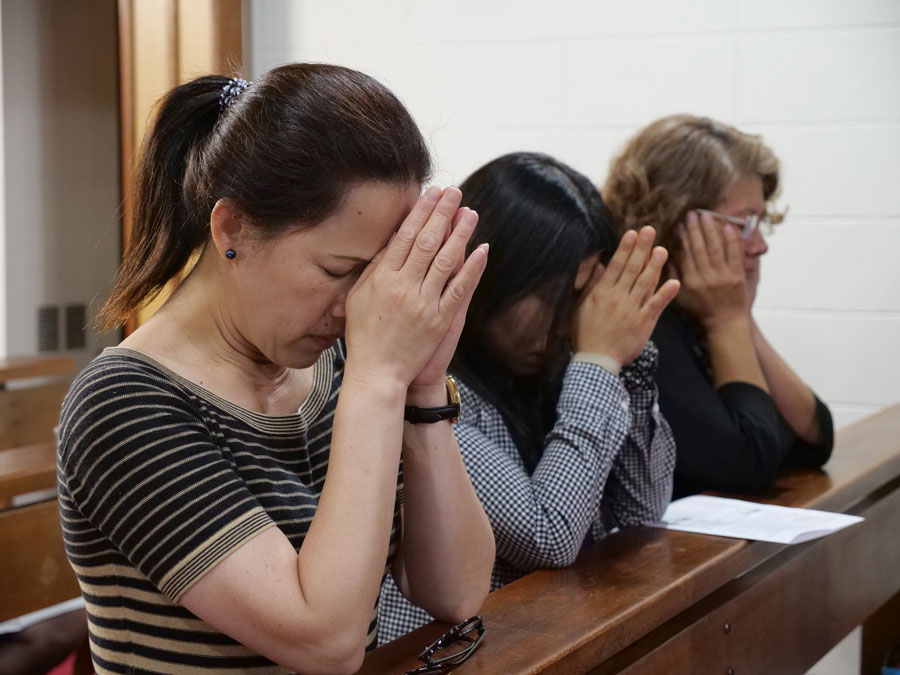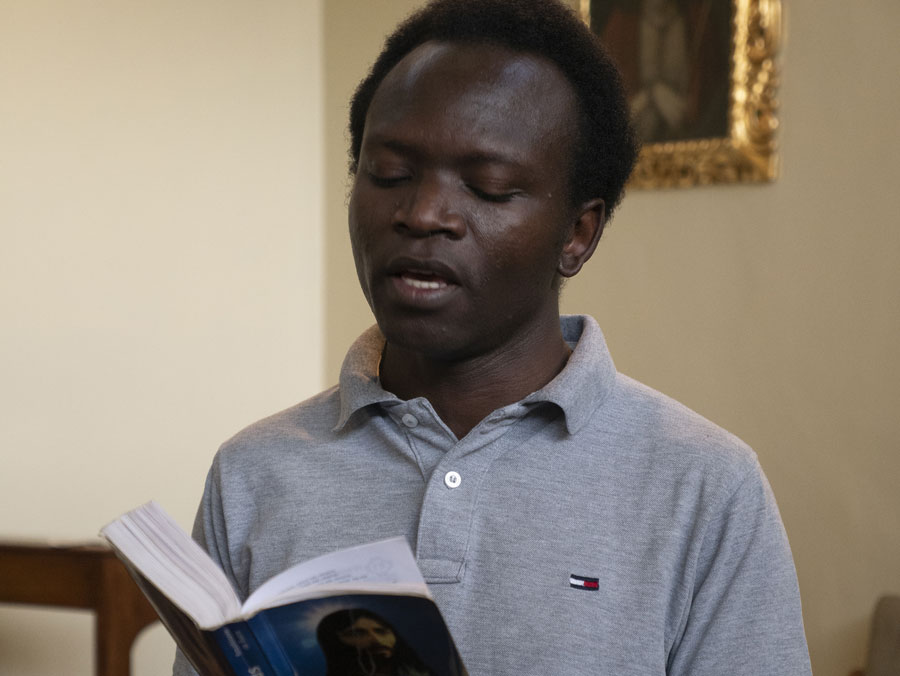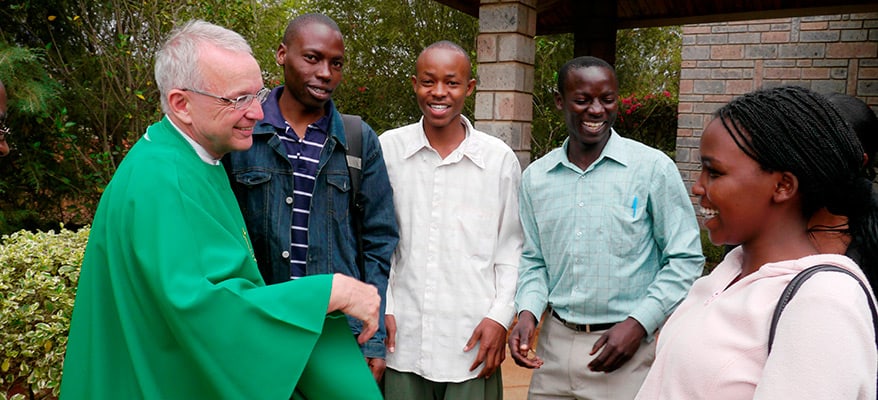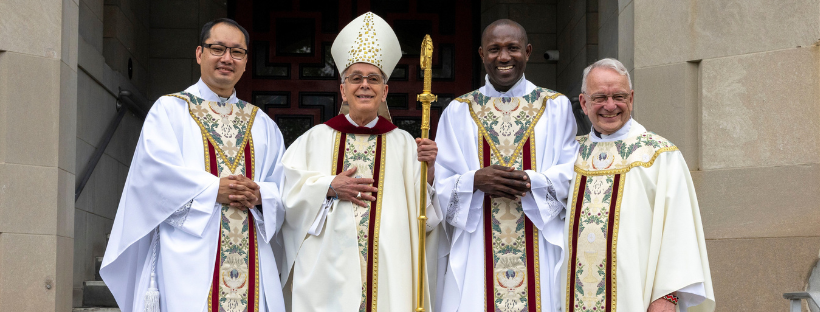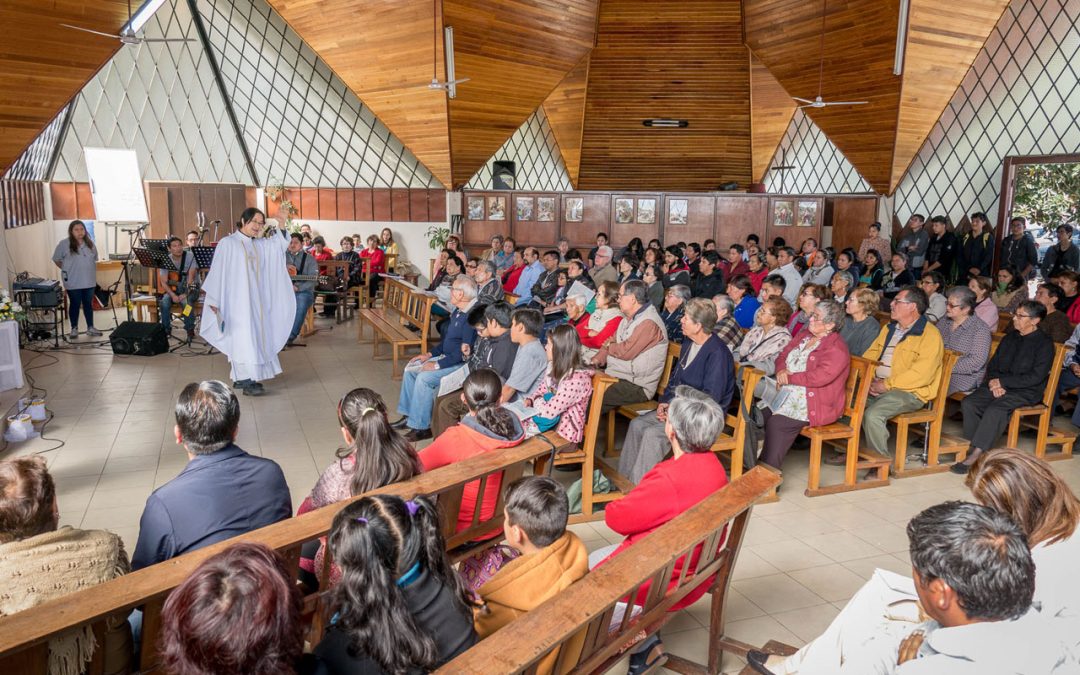
Joyful Witnesses of Good News, Journey of Faith
Today’s Gospel for the feast of Christ’s Ascension notes that after Jesus “was taken up to heaven,” his disciples “returned to Jerusalem with great joy.” They had experienced many remarkable events, ranging from Jesus’ public ministry, his passion and death to his resurrection. Now, just before his ascension, Jesus tells them: “you are witnesses of these things.” Yes, they are to be “joy-filled witnesses” of the entire Christ-event.
The Second Vatican Council (1962-1965), describing the Church’s mission in the world today, includes the entire panorama of human experiences as the focus of evangelization. Gaudium et Spes (Joy and Hope) on the Church in the Modern World asserts in its opening sentence that the “joys and hopes, the griefs and anxieties of people of this age” are intimately shared by Christ’s followers. The profound connection that exists between joy and missionary evangelization has very deep roots.
In 1975 Saint Pope Paul VI wrote two apostolic exhortations for the jubilee year. His well-known Evangelii Nuntiandi (EN) [Evangelization Today] is probably the best document he ever authored; his little-known Gaudete in Domino (GD) [Christian Joy] was written for Pentecost 1975. Paul VI affirms the “joy-evangelization” dynamic. He asserts that “the Gospel must be proclaimed by witness” (EN 21), “the witness of an authentic Christian life” (EN 41); and, this task must be done “with ever increasing love, zeal and joy” (EN 1). The pope identifies various obstacles which “impede evangelization”; the most serious is “lack of joy and hope” (EN 80).
Paul VI speaks personally to all evangelizers: “Let us preserve the delightful and comforting joy of evangelizing, even when it is in tears that we must sow” (EN 80). “May the world of our time … receive the Good News, not from evangelizers who are dejected, discouraged, impatient or anxious, but from ministers of the Gospel whose lives glow with fervor, who have received the joy of Christ…” (EN 80).
Saint Mother Teresa asserts: “Joy is prayer. Joy is strength. Joy is love. Joy is the net by which you catch souls…. A joyful heart is the inevitable result of a heart burning with love. Never let anything so fill you with sorrow as to make you forget the joy of the risen Christ.”
Pope Francis’ first document bears the title Evangelii Gaudium (The Joy of the Gospel); in it he mentions joy well over 100 times. I reserve a discussion of his numerous rich insights on joy for another occasion.
Personally, from my 52 years of overseas mission experience, I am convinced of the intimate
connection between Christian joy and effective evangelization. If people today do not receive the Christian message from “joyful evangelizers,” I doubt they will receive it at all. I totally agree with Pierre Teilhard de Chardin, S.J., who said: “Joy is the most infallible sign of the presence of God.”
How deep is your Christian joy—even in the midst of life’s numerous challenges?
James H. Kroeger, MM
Prayer for the Ascension of the Lord
By your most wonderful Ascension,
Lord Jesus, you raised up humanity
To the glory of your divinity,
Wedding earth to heaven
And raising the human race
To new dignity in your presence.
We stand on your promise
That you would never abandon us
Nor leave us orphaned in this life.
May everyone who calls out to you
In faith feel the power of your presence
Within us and moving us ever outward
And upward to higher levels of love
And life together with all your saints.
You who have now ascended
Out of our sight, open our hearts
To search and see you here
Among us still: in the poor, the oppressed,
Those who mourn and all who thirst
For justice and peace in our day.
At length when our time on earth
Has ended and our life here is done
Grant us all a place in your Father’s house
Where we might live forever
Praising you who called us and took us
Home with you.
Amen
By Fr. Joseph Veneroso. M.M.
